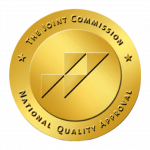Sobriety is something that needs to be continuously worked on throughout a lifetime. Once people go through treatment and recovery, they believe they are better and ready to jump back into life. Sadly, this is when relapse occurs and can be the toughest part of your new sober lifestyle. There are many triggers in your past life that can put you back into that headspace that you were once in before choosing to take the steps to get sober.
There are amazing resources and support groups that help with the transition back into society and afterward. Although these are extremely helpful, you will have to put in the work because, at times, it can get challenging. A sober life is not always easy, but it is not impossible. You will have good days and bad, and there are always support systems there to help you along the way.
Change Can be Uncomfortable
Change can be scary, no matter the circumstances. Although, when in recovery and getting back into life after recovery, it can seem more difficult. You are going from one extreme, that you knew so vividly, to another that is new and challenging. When abusing substances, oftentimes they take most of the feelings, emotions, and anxiety that life brings away. Now that you have completely taken those substances out of your life, you feel everything and this can be overwhelming and hard to manage.
People think that getting up and moving to a new place and getting away from the potential triggers will help keep them on the right track. Unfortunately, the change isn’t in the environment around you that will keep you on your sober journey, it’s the changes within. You can’t stay away from people who drink and think that this is the end all be all fixed. Many people drink, or smoke, so avoiding these people is near impossible. Changing your mindset, and not allowing these triggers to affect you is what will keep you focused and not itching to spiral back down.
When you choose to break free from the chains that held you back, this comes with many changes. The friends you once had may drift because those were the people who encouraged the addictions. The places you hang out may begin changing to help keep you away from the triggers. Although life may look different, the important thing is how you look at and accept these changes. These are all positive changes that are setting you up for success and a full and beautiful new life.
Facing Peer Pressure and Triggers
This challenge in your sober journey goes hand in hand with the fear of change. It is these changes that you must make in order to keep you motivated and focused, that can be scary. Many things from your old life can and will be triggering. People from your past life may not respect the choice you made to become sober. This is why choosing to let some of these friendships dwindle away can be the best option for your success.
Going to the same places you use to call the hangout spots can be major triggers. Oftentimes, these were the places most people would get high or drink too much, which can be triggering. Avoiding these places may be difficult, but it can be vital especially in the first few months out of recovery. Remember recovery and life after will look different for everyone. You are allowed to go out and enjoy yourself as long as you stay motivated and remember why you put in the work to get where you are.
Dealing with Stress and Emotions
Many people will pour themselves a drink after a long day to help relax them from the stressors of a long workday. Some may turn to substances to help mask the emotions and anxiety of a tough situation they are facing. This may be what your past life used to consist of and may seem to be the easiest solution to deal with stress and the emotions it brings. If you truly want to stay sober and change your life for the better, this can not be an option anymore.
Learning healthy and useful ways to cope with stress and anxiety is a vital step when getting back into society after recovery. Here are some examples to help manage stress:
- Finding a support group
- Talking with family and friends
- Eating healthy
- Exercise
- Getting enough sleep
- Finding a new hobby
However you decide to cope with stress and your emotions, doing it in a healthy way is important. Don’t allow yourself to slip back into bad habits.
The Misconception that Sober = Boring
The sad reality is, for the first few months, trying to get back into normalcy as a sober person can seem boring. You may be used to going out to happy hour with friends, or going to parties and getting high to fill your time. When people allow themselves to get lost in their addiction, they end up losing themselves. This is why when they finish the program, the common question is, what’s next? One of the first steps to breaking through the ‘boring’ funk you may find yourself in, is finding things you enjoy doing.
This is the perfect opportunity to try that art class you always wanted to go to. Learn how to surf or take cooking lessons. There are endless opportunities out there to keep you busy and happy. Letting yourself get bored and not doing anything about it is when many people find themselves thinking about the substances they once abused. Allowing your mind to drift back to those dark times is when relapse can occur. Find a local support group and take workout classes a few times a week together.
You are never alone and there are so many support groups and tools out there waiting for you to take advantage of.
Need Help In Fighting the Hardships Associated With Sobriety?
Various alcohol and drug rehabilitation centers can also play their part in easing the problems associated with stress and confusion after leaving recovery. By providing highly individualized services for both in and outpatients and those who have finished the program. One of the most prominent examples is the Harm Reduction Center, which is a private healthcare facility that offers integrated medication-assisted treatment and all outpatient levels of care. The experts at Harm Reduction Center believe that recovery should be different for everyone, and provide the tools for success every step of the way.














